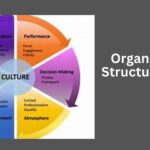In this article; What is Self-discovery? Key aspects of self-discovery The 4 Stages of Self-discovery The Journey of Self-discovery The Power of Transformation The Continual Process
What is Self-discovery?
Self-discovery, often referred to as the process of “finding oneself,” is a profound journey of introspection and exploration aimed at gaining a deeper understanding of one’s own identity, values, beliefs, desires, and purpose in life. It involves peeling back the layers of external influences, societal expectations, and conditioning to uncover the authentic and unique aspects of one’s personality and inner world.
Key aspects of self-discovery
They include;
- Self-Awareness: Self-discovery begins with self-awareness, which is the ability to recognize and acknowledge one’s thoughts, emotions, behaviors, strengths, weaknesses, and motivations.
- Questioning and Reflection: It often involves asking introspective questions and engaging in deep reflection about one’s life, experiences, and aspirations. Questions like “Who am I?” and “What do I want?” are common in this process.
- Exploration and Experimentation: Self-discovery may lead individuals to explore new interests, hobbies, or experiences as a means of better understanding their preferences and passions.
- Challenging Beliefs: It requires a willingness to challenge and examine existing beliefs, biases, and assumptions to determine if they align with one’s true values and principles.
- Acceptance and Self-Compassion: Self-discovery involves accepting oneself, including imperfections and past mistakes, with self-compassion and without judgment.
- Personal Growth and Transformation: The journey of self-discovery often leads to personal growth and transformation as individuals gain insights into their inner world and make positive changes in their lives.
- Alignment with Values: It helps individuals identify and align their actions, choices, and life paths with their core values and beliefs, fostering a sense of authenticity and purpose.
- Enhanced Relationships: Self-discovery can improve interpersonal relationships as individuals gain a deeper understanding of themselves, which in turn allows them to better relate to and connect with others.
- Direction and Purpose: Through self-discovery, individuals may uncover their life’s purpose or a clearer sense of direction, which can guide their choices and decisions.
- Continuous Process: Self-discovery is an ongoing, lifelong process. As individuals evolve and face new experiences, they continue to learn more about themselves.
Self-discovery is a deeply personal and subjective journey, and its significance can vary greatly from person to person. It is not a destination but a continual exploration of one’s inner world, allowing individuals to live more authentically and intentionally. It can be a source of empowerment, self-acceptance, and fulfillment, ultimately leading to a more meaningful and purposeful life.
The 4 Stages of Self-discovery
While the journey of self-discovery is highly individual and unique to each person, it can generally be broken down into four key stages:
#1: Self-Awareness
In this initial stage, individuals start becoming more conscious of themselves and their inner world.
They begin to recognize their emotions, thoughts, behaviors, strengths, weaknesses, and values.
Self-awareness often involves introspective questions like “Who am I?” and “What do I want?”
#2: Exploration and Experimentation
In this stage, individuals actively explore new experiences, interests, and opportunities.
They step outside their comfort zones to try new things, meet new people, and expand their horizons.
Exploration may include pursuing hobbies, traveling, taking on new challenges, or trying out different career paths.
#3: Challenges and Reflection
During this stage, individuals confront challenges and setbacks that test their self-awareness and resilience.
They reflect deeply on their responses to adversity and consider how their beliefs and values are impacted.
This stage often leads to personal growth and a reevaluation of one’s priorities and beliefs.
#4: Integration and Authenticity
In the final stage, individuals strive to integrate the insights gained from self-awareness, exploration, and reflection into their daily lives.
They make intentional choices that align with their true selves and core values.
Authenticity becomes a guiding principle, allowing individuals to live by their genuine identities.
The Journey of Self-Discovery
#1: Know Thyself
The ancient Greek aphorism “Know thyself” holds timeless wisdom. Self-discovery begins with introspection and self-awareness. Take time to reflect on your values, beliefs, strengths, weaknesses, and aspirations.
#2: Embrace Change
Self-discovery often requires a willingness to change. Be open to exploring new ideas, trying new experiences, and stepping outside your comfort zone.
#3: Self-Compassion
Practice self-compassion and self-acceptance. Recognize that everyone has faults and that it’s acceptable to make errors.
#4: Seek Inspiration
Seek inspiration from books, mentors, role models, and life experiences. Learn from others but remember that your journey of self-discovery is unique.
#5: Mindfulness and Meditation
Cultivate mindfulness and meditation practices to stay present and connected with your inner self. These practices can help you better understand your thoughts and emotions.
The Power of Transformation
#1: Embrace Growth Mindset
Adopt a growth mindset, believing that you can develop and improve throughout your life. This perspective fosters a willingness to learn and adapt.
#2: Set Goals
Establish goals that are in line with your values and aspirations. Make sure they are precise and doable. Goals give you direction and purpose on your transformational journey.
#3: Face Challenges
Transformation often involves overcoming challenges. Consider difficulties as learning opportunities rather than setbacks.
#4: Celebrate Progress
Honor every success you have along the path, no matter how minor it may seem. Recognizing your progress reinforces your commitment to transformation.
#5: Learn from Setbacks
Accept that setbacks are a necessary part of the journey and learn from them. Use them as valuable learning experiences and a chance to adjust your path if needed.
The Continual Process
- Lifelong Learning: Commit to lifelong learning and personal development. Read, take courses, and engage in activities that expand your knowledge and skills.
- Embrace Change: Understand that transformation is an ongoing process. As you evolve, your goals and priorities may change, and that’s perfectly normal.
- Seek Support: Share your journey with trusted friends, mentors, or a therapist. Supportive relationships can provide valuable insights and encouragement.
- Practice Gratitude: Cultivate a practice of gratitude. Reflect on the positive aspects of your journey and the lessons you’ve learned along the way.
- Give Back: As you grow and transform, consider how you can give back to your community or society. Contribution and service can be deeply fulfilling aspects of personal growth.
Self-discovery and transformation are the threads that weave the fabric of your life’s narrative. Embrace the journey with curiosity, courage, and self-compassion. Understand that it’s okay to change and evolve and that every step you take brings you closer to becoming the best version of yourself. In the end, your journey is not about reaching a final destination but about continually uncovering and developing the incredible potential that lies within you.






